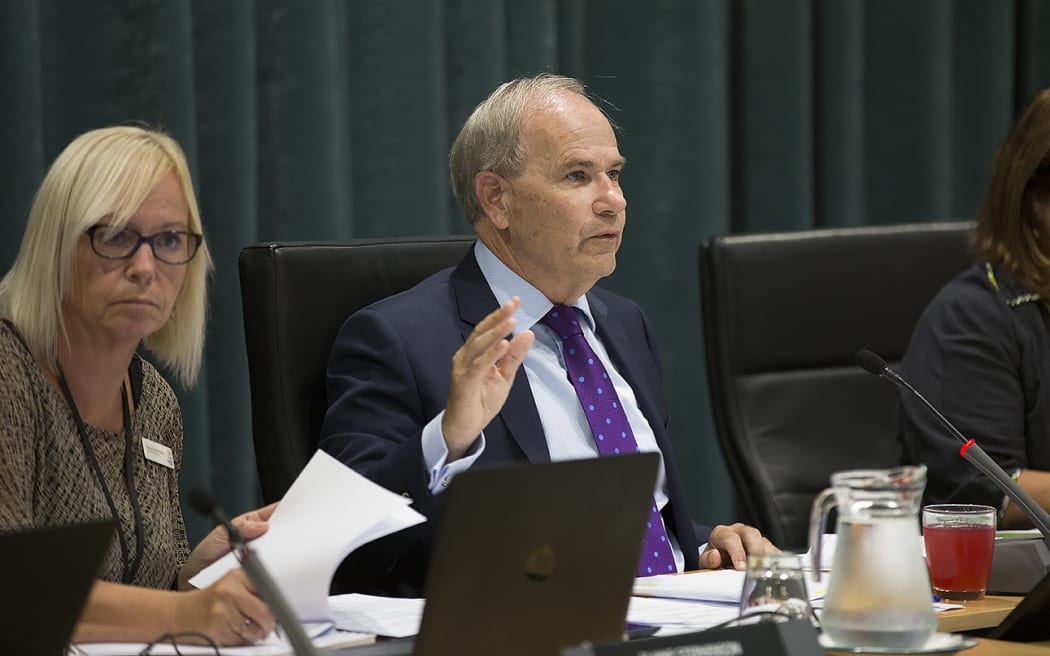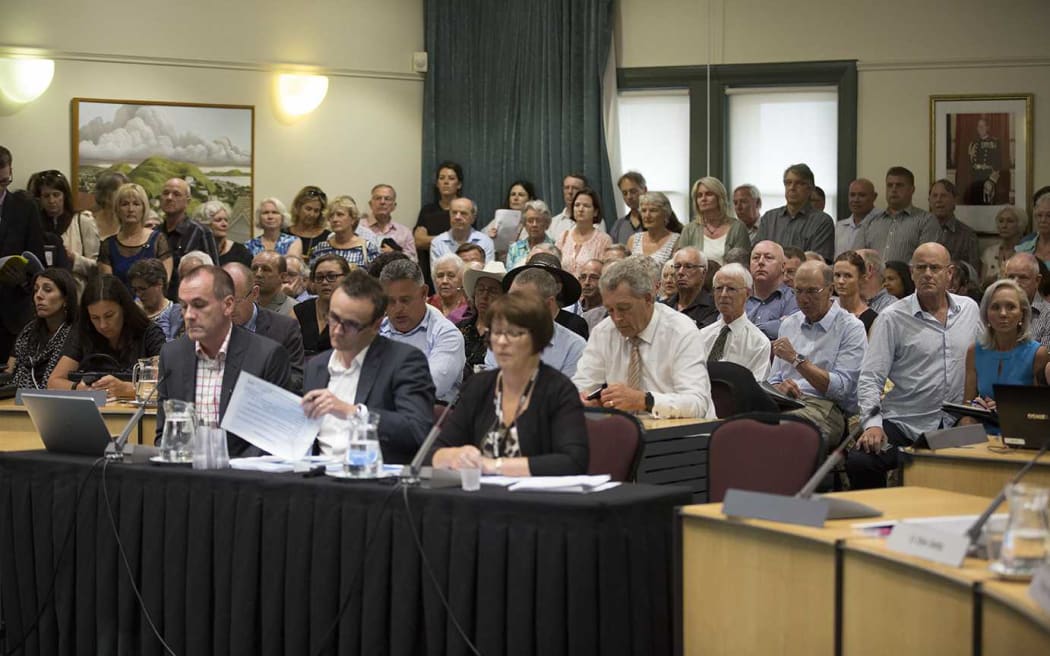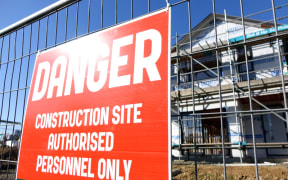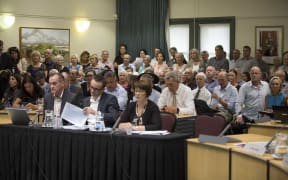The leadership of the Auckland Council has suffered an unprecedented defeat that could leave the council unrepresented at crucial hearings on the future shape of housing in the city.

Mayor Len Brown, centre, at the Auckland Council debate last night. Photo: RNZ / Diego Opatowski
A 13-8 vote at the end of a five-hour extraordinary council meeting last night dumped some of the changed proposals for increased housing density the council would have taken to an independent panel weighing up the city's Unitary Plan.
Opponents of the changes said property owners should have been consulted, but the council argued the government-designed Unitary Plan process did not allow it.
Look back at proceedings here.
The vote was a victory for a campaign run under the Auckland 2040 banner whose founders addressed a protest meeting of 700 in Kohimarama two weeks ago.
"I think it was a question of grass-roots democracy in action," said Auckland 2040 co-founder Richard Burton who watched the vote at the end of the meeting.
"We got a result and praise to the councillors for doing it, they see the need to consult with the public and that's what they are now going to do."

Aucklanders fill the Town Hall to air their views on zoning and high density proposals by the council. Photo: RNZ / Diego Opatowski
The lengthy meeting featured presentations from eight selected interest groups, both for and against withdrawing the council's beefed up density argument.
Instead, they voted by a similar margin to back a move put up by councillor Dick Quax for some of the higher density proposals to be withdrawn from council evidence to the independent panel.
But while supporters of Mr Quax's proposal were hailing a victory for democracy and natural justice, senior council staff and politicians said the move had serious consequences.
"I don't think councillors have any idea of the impact of the decision they've made," said deputy mayor Penny Hulse who led the four-year process of creating the 30-year development blueprint.
"We got sound legal advice which says this retraction of our evidence was almost undoable, and left us in the position of having no say in the panel process."
"People might regard that as a good outcome, I think it leaves most of our community stranded," she said.
Prior to the vote, the council would have spent two months taking part in the discussion of thousands of submissions on residential zonings being considered by the government-appointed panel.
The panel effectively finalises the Unitary Plan, then passes it back to the council in July for it to accept or reject.
After the meeting, Mayor Len Brown conceded the outcome was a significant defeat for his leadership.
Mr Brown acknowledged that getting the Unitary Plan in place was the biggest task set by the government when the council was created in 2010.
He said the Minister for Building and Housing Nick Smith would probably be disappointed at the vote "because the government is seeking as seamless a process as possible."
Dr Smith said this morning the the Unitary Plan process was still on track even though the council had thrown out its own evidence for the independent panel.
"What's being discussed here is simply what is in the Auckland Council submission to the independent panel," he told Morning Report.
"The independent panel ... still has to make those numbers stack up - that is, they have to deliver a Unitary Plan."
And Richard Burton, of Auckland 2040, said the council would still be involved in decision on more intensive housing.
Whether the council is cut out of the Unitary Plan hearings is not yet certain. The hearings panel has wide powers to summon witnesses and it is not known how it will respond to the vote.
Len Brown said the vote ended the role of politicians in the residential zoning debate until the hearings panel sent the recommended Unitary Plan back to the council in July.
He said there would be no further public input other than for existing submitters to the hearings.
Peter Jeffries, chief executive of community housing provider CORT, said the outcome was a setback to those struggling to afford a roof over their heads.
"We're going to get more expensive housing, both for new people wanting to get into first homes, but more importantly for the 50 percent of Aucklanders who rent."



